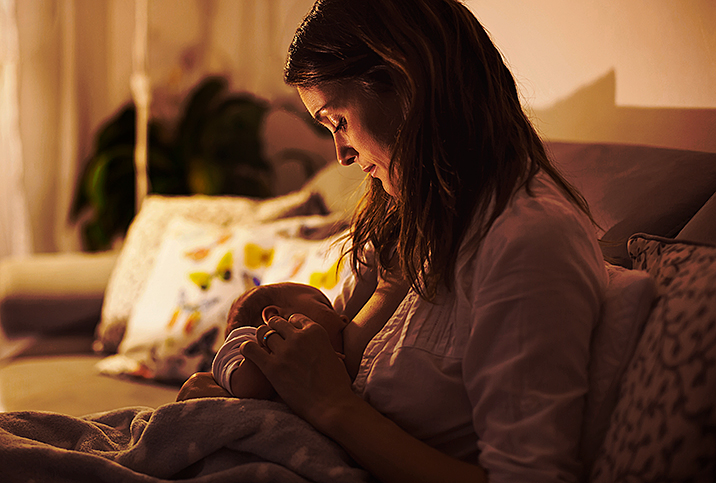Can You Get Botox While Breastfeeding?

Botox is a popular injectable drug used for cosmetic purposes and to treat certain medical conditions, such as chronic migraines, excessive sweating and overactive bladder. Newer potential uses yet to be approved by the U.S. Food and Drug Administration (FDA) include treating depression and erectile dysfunction (ED).
Some medications and treatments are not recommended during breastfeeding; certain substances can pass into breast milk and harm a growing baby.
Botox is made from one of the most deadly neurotoxins harnessed by humans for medical purposes, botulinum toxin type A, which comes from Clostridium botulinum, a type of bacteria. This toxin can cause botulism, a serious illness that may cause paralysis and even death.
With this in mind, it's reasonable to question if receiving Botox while breastfeeding is safe. Although the Drugs and Lactation Database (LactMed) states that botulin A is unlikely to pass into breast milk, there are no scientific studies on the topic. The FDA states that it is currently unknown if Botox passes into breast milk.
So it's difficult to know for sure if Botox is safe while breastfeeding until research has been conducted on the topic. In the meantime, here's what experts recommend for breastfeeding mothers who want to get Botox.
Botox is unlikely to pass into breast milk
While no studies have been conducted on Botox in breast milk, several have shown it is undetectable throughout the bodily system after intramuscular injection. Experts believe this finding means it is unlikely that Botox passes into breast milk.
Interestingly, breast milk seems to have a protective effect against botulism. A past case study of a mother infected with botulism showed no transfer to the infant and no detectable botulinum toxin in the milk.
When botulinum toxin is used in Botox treatments, the toxin level is much less than with an active infection. Using this information, scientists have concluded that no adverse effects are expected and no precautions must be taken. But without clinical research to back it up, this conclusion is speculative. We don't know if it's okay to breastfeed and get Botox.
Is speculative evidence enough when it comes to nursing mothers?
"Current research suggests that obtaining Botox injections while breastfeeding may be safe but is overall inconclusive given the scarcity of investigations into the topic," said Samuel Lin, M.D., a board-certified plastic surgeon and an associate professor of surgery at Harvard Medical School.
Although the risk of passing the toxin to your infant is likely low, there are other risks involved in Botox treatments that could affect your health and, therefore, your ability to care for your baby. According to the FDA, these risks include:
- Trouble breathing, speaking and swallowing
- Muscle weakness
- Vision issues
- Loss of bladder control
- Possible tremors
The FDA placed the highest level "black box" warning label on Botox because of the high number of potential side effects.
How doctors advise their breastfeeding patients on Botox
Due to the lack of research in the field, most healthcare professionals cautiously recommend that patients who are pregnant or breastfeeding wait to receive cosmetic Botox injections.
"It is important to clearly inform patients of the data surrounding this discussion," Lin said. "While there is evidence that Botox will likely not reach the infant through breastfeeding, no clinical trials have officially demonstrated this, and more research is necessary to reach a definitive conclusion."
"Our primary question for Botox and breastfeeding is for cosmetic reasons. Other physician specialties use Botox for medical reasons, such as neurologists for headaches. Therefore, my best advice is to defer Botox until you've stopped breastfeeding," said Monte Swarup, M.D., a board-certified OB-GYN and founder of HPD Rx, a health supplement company in Santa Monica, California.
The FDA states that if you are planning to get Botox and are currently breastfeeding or plan to breastfeed in the future, inform your doctor before the procedure. That way, your physician can discuss the risks with you and you can decide together whether Botox injections are worth the risk for your specific circumstances.


















